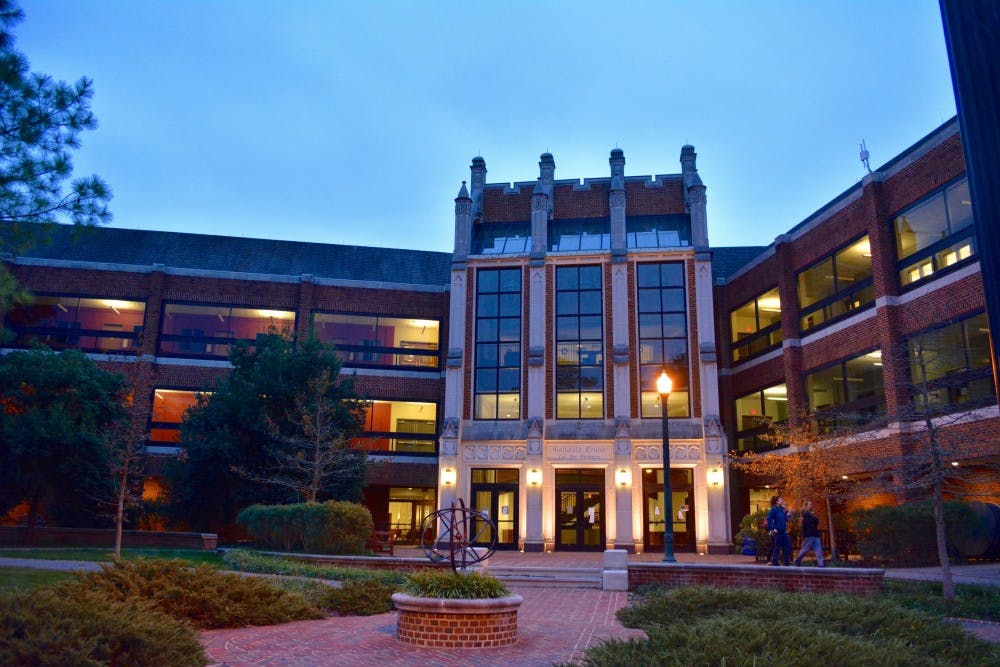Long hours spent in the Gottwald Science Center on labs, lengthy research and reports are a common occurrence for many pre-health or science students. A student-run science publication has become yet another reason for Osmosis editor-in-chief Alex Long, RC ’17, to spend extra time inside the building.
Osmosis Magazine debuted in fall of 2016 as the first pre-health publication at the University of Richmond. The magazine staff has been preparing to publish its second issue in April 2017, hoping to establish a permanent spot at UR.
Long and Nicole D'Ambrosio, WC ’17, created the idea for a health care magazine last year while working on a lab report. They then proposed a more developed idea to faculty advisor Michelle Hamm.
“Flash forward to junior year of college, I really wanted to give back to the school and make some sort of impact on Gottwald, because I spend all of my time here,” Long said. “I felt like there were so many students who were taking classes with one another and they were doing their research, but they weren’t diving deeper into what could become something really cool.”
Long and D’Ambrosio gathered a group of approximately 15 upperclassmen to publish the fall edition of the magazine. Long said that publishing the first issue of the magazine was a learning curve, as all the editors entered the process “completely blind” and with only scientific magazines from other universities to look to as their guides.
“I knew that I wanted to create something tangible here,” Long said. “It’s expanded beyond what I thought it was going to be, and I love that.”
Though many members of its staff are science majors or pre-health, the only requirement for the magazine's content is that it must focus on STEM+C (science, technology, engineering, mathematics and computing) or health care topics.
Long hoped to make it a forum for science students to share research, and this idea led to the creation of the magazine’s name, Osmosis.
“I wanted to develop more of a community in Gottwald, so I thought 'osmosis,' which, in very base terms, is the movement of water," Long said. "This signifies the movement of knowledge from a high capacity to a low capacity, eventually making them both equal."
“I’m proud to work with other students and faculty to create something that cultivates intellectual conversation outside the classroom,” executive editor Tony Da Lomba, RC ’17, said. “Osmosis gives us an opportunity to immerse ourselves in our fields of study, which is a nice reminder of how students on campus are so passionate about their education and their career paths.”
After publishing the first issue, the staff from the fall semester focused on recruiting other students to join the staff for the spring edition, as most of the original staff will be graduating in May. The staff grew from 15 to 31 and now includes students from all grade levels.
“What is great about Osmosis, and the idea that they have over 30 writers now, is that hopefully it outlasts the students who began it so it becomes more sustained over time,” chemistry professor Michelle Hamm said. “The idea is that it has to be accessible to folks outside the sciences.”
Enjoy what you're reading?
Signup for our newsletter
Contact news writer Stacey Dec at stacey.dec@richmond.edu.
Support independent student media
You can make a tax-deductible donation by clicking the button below, which takes you to our secure PayPal account. The page is set up to receive contributions in whatever amount you designate. We look forward to using the money we raise to further our mission of providing honest and accurate information to students, faculty, staff, alumni and others in the general public.
Donate Now



